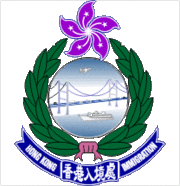
Reblando fled to Hong Kong in 2011 with her daughter, claiming inadequate security to protect her back home. She also criticized the slow grind of justice in the Philippines.
Mother and daughter had asked the Hong Kong Immigration Department to allow them to stay in the Special Administrative Region while awaiting the result of their pending application for asylum with the United Nations High Commissioner for Refugees.
They said they faced torture if they returned to the Philippines.
The Hong Kong government is prohibited from returning to their country of origin persons claiming risk of torture and other threats to their lives, according to Danilo Reyes, acting deputy director of the Asian Human Rights Commission (AHRC).
Facing deportation
But with the Hong Kong Immigration Department’s rejection of Reblando’s torture claim, she and her daughter faced deportation to the Philippines, Reyes said.
He said Reblando would appeal the ruling.
In her torture claim, Reblando detailed several incidents she said highlighted the dangers she and her daughter faced should they return to the Philippines, including certain death after the Ampatuans reportedly offered her P3 million to stop talking about the case or, should she refuse the money, it would be paid to others to kill her.
Members of the Ampatuan family led by former Maguindanao Gov. Andal Ampatuan Sr. are the main suspects in the 2009 massacre that included her husband, Alejandro Reblando, among the 32 media workers killed, and the 57 fatalities overall.
But the HK Immigration Department said the reasons Reblando cited were inadequate to support her case.
The Hong Kong-based AHRC provided the Inquirer a copy of the April 3 decision.
In it, the Immigration Department said the experiences Reblando and her daughter cited did not amount to torture.
It noted her affirmation that the Ampatuans had not physically harmed her, and that even if she had suffered emotionally from threats made by the Ampatuans, she was still able to perform her function as spokesperson of the Justice Now! Movement.
Unrestricted travel
It also said she was able to travel from her hometown to Manila many times to attend court hearings of the Maguindanao massacre case, and had also been able to travel abroad on holiday.
“Based on your elaborations, there is no evidence or indication that any act by which severe pain or suffering, whether physical or mental, has been inflicted on you or [your daughter],” the Immigration Department said.
As for the P3 million offer made by the Ampatuans, the department said there was no evidence it was made, or even if it was, that it had come from the Ampatuans.
“Any risk of torture from the Ampatuans, even if established, is localized and thus is avoidable if you and [your daughter] move to another place other than Maguindanao or at most Mindanao upon your return to the Philippines,” it said.

